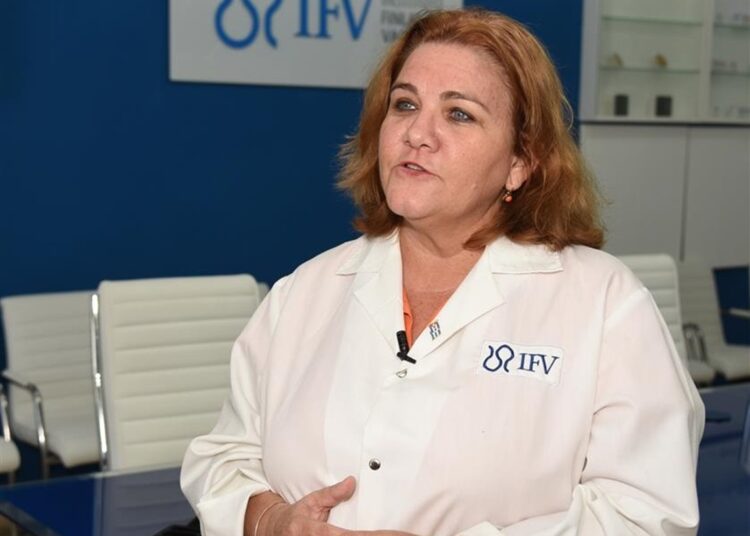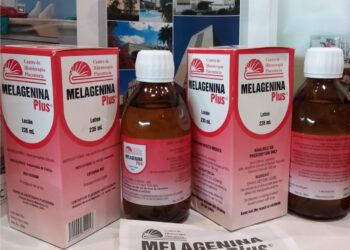The Lancet journal praised the work of Cuban scientist Dagmar García, who has extensive experience in the development of vaccines, including those against COVID-19 and pneumoconiosis, which leads to potentially serious and even fatal infections.
Under the title, Dagmar García Rivera—a career of passion and resilience, its author, the Brazilian Elisa Pucu, senior editor of the British publication and a doctor in Microbiology and Parasitology, told a life story of the Cuban pharmacologist, from her first scientific concerns in high school to her involvement in vaccines of high technical complexity.
“When the pandemic [started]…for the first time we received the responsibility to produce a vaccine as fast as possible… we worked very hard, we sacrificed our families, our life, our priorities during 2020, 2021 and 2022, [and we] fully dedicated to the development of SOBERANA vaccine,” said Dr. García.
Upon discovering that the vaccine candidate worked, which was applied, after passing the mandatory clinical phases, to more than 1.8 million Cuban children, the effect on Dr. García was “incredible.”
“For me [this] is the most important thing I [have done] in my life,” she summarized to The Lancet.
The expert is currently deputy head of Research at the Finlay Vaccine Institute, the first center to begin human clinical trials of two of the five Cuban COVID-19 vaccine candidates at the height of the pandemic.
“Her success is also due to the combination of great teamwork and support from the government,” wrote Dr. Pucu. “The combination of innovation, agility and commitment was the recipe for success,” the editor summarized.
A PhD on the immunomodulatory effect of natural products
In 2003, Dr. García began her PhD focusing on the immunomodulatory effect of natural products. Two years after successfully defending her doctoral thesis, she joined the research group led by Professor Vicente Vérez-Bencomo in 2008, The Lancet said.
“The day I had the first conversation with Dr. Vicente about vaccines, I [fell] in love with the idea to do, with my immunological knowledge, something important for [people’s health]. Now, I have been involved in important vaccine projects [for] the last 15 years, leading the preclinical and clinical evaluation of these vaccines,” recalled the researcher born in the city of Santa Clara and coming from a family of scientists.
The Finlay Vaccine Institute and the Center for Genetic Engineering and Biotechnology (CIGB), both in Havana, are the main centers responsible for vaccine production on the island.
“We focus on the most important vaccine projects. Our Institution, Finlay Vaccine Institute, produces more than 80% of vaccines used in our National Immunization Program,” said the pharmacologist, who graduated in Pharmacy from the Universidad Central de las Villas in 1998.
Quimi-Vio Project
Likewise, Dr. García is one of the leaders of the Quimi-Vio project, the variant created on the island of the pneumococcus vaccine, a heptavalent injectable that contains in its composition seven antigens against the bacteria that causes the disease.
In 2019, the researcher was awarded the Carlos J. Finlay medal, the highest recognition for Cuban scientists.
A candidate for the Nobel Prize in Physiology or Medicine between 1905 and 1915, Cuban epidemiologist Carlos J. Finlay discovered the agent that transmits yellow fever ― Aedes and Haemogogus mosquitoes ― at the end of the 19th century.
The infection, along with malaria, killed thousands of Panama Canal builders and forced France to abandon the project in 1889, the United States finally taking it over in 1904.










